Benedetta Arrighini
GEM-DIAMOND doctoral fellow
ESR 11 – Legal contestation on the rule of law and its impact on EU cooperation in criminal matters with third parties: EU-MERCOSUR
Always interested in Criminal Law and European Law, with a special focus on External relations, I found my perfect combination with my research project: Judicial Cooperation in Criminal Matters with Third States: the case of EU and MERCOSUR. My project explores the relationship between the rule of law and cooperation in criminal matters mechanisms in intra-regional and inter-regional cooperation.
Cooperation in Criminal Matters and The Rule of Law in the EU and Mercosur: From Comparative Regionalism to Interregional Relations.
Supervisors
- Anne Weyembergh
- Paula Almeida
- Rossella Sabia
Research abstract
The research aims to investigate the cooperation in criminal matters within the EU and Mercosur and between the two by focusing on the interaction with the rule of law. Two complex issues arise. Firstly, the tense but also interdependent relationship between cooperation in criminal matters and the rule of law: cooperation is necessary to combat crime, and it contributes to the enhancement of the rule of law, but it is also dangerous because it is not certain that the other cooperating state complains with fundamental rights; on the other side, the rule of law can enhance cooperation - they have a mutual and complex relation. Secondly, the presence of two regional entities, the EU and Mercosur, with different systems, contexts, and competences. For this reason, the research delves into comparing the two regions and then examines inter-regional relations.
To initiate, a brief contextualization. The EU Area of Freedom Security and Justice (AFSJ) is an advanced model of cooperation based on mutual trust and the sharing of common values among Member States. The way forward is still long, yet the degree of cooperation in the EU is much higher compared to other regions, specifically, Mercosur. In fact, in Mercosur cooperation in criminal matters receives less attention, and the Member States’ mutual trust is fragile, if not non-existent. However, despite the EU’s advanced system, the region is experiencing a contestation of its values by some EU Member States themselves, which is leading to a decline in mutual trust, and this is affecting cooperation in criminal matters too. Decreasing trust within the EU can influence the trust the EU has in its relations with third states, in this case with the regions, which was already low from the start. Consequently, if the EU has low trust internally, this affects the already low trust externally and this complicates cooperation – there is a direct proportionality relationship between the internal and the external EU trust. On the other side of the ocean, the democracies of Mercosur’s states are precarious, and this impedes the potential increase of trust within the region. In brief, both regions encounter trust issues: more specifically, in the EU, there is an increasing distrust, and in Mercosur, an endemic low trust. This context can impede an interregional project. The solution is not to put the problem aside but to tackle it by analysing it.
This discussion involves any level of cooperation; accordingly, this study selected two regional entities with different systems, contexts, and competencies. If national states have differences, the regional realm is even more intricate. In this scenario, the analysis delves into a comparison of the EU and Mercosur regions to better understand each, and then examines their interregional relations. Indeed, the best way to understand and convey a topic that may seem abstract, and extremely far removed from the common imagination, is to pick a concrete situation. On this wave, the dissertation will explain this tense relationship by scrutinising two mechanisms of cooperation, Extradition and Mutual Legal Assistance: from which perspective these two mechanisms can impact and be impacted by the rule of law? To achieve a deeper understanding of the problem, one must narrow the wide and abstract concept of the rule of law. Consequently, the analysis will focus on the fundamental rights of the suspect and the accused person targeted by the two abovementioned cooperation mechanisms in criminal matters. More specifically, this research will focus on two fundamental rights at risk: the prohibition of torture and other cruel, inhuman, or degrading treatment or punishment and the right to a fair trial.
Research Question(s)
Research Hypothesis(es)
Personal Research Bibliography (So Far)
Alcantara, Guilherme Goncalves; Florestan Prado, ‘The Constitution Means What the Supreme Court Says It Means: But Only When I Want: About How (Not to) Work with Precedents’ Revista Brasileira de Direito Processual Penal 3, no. 1 (January/April 2017): 343-366
Brodowski, Dominik. «Judicial Cooperation between the EU and Non-Member States». New Journal of European Criminal Law 2, fasc. 1 (marzo 2011): 21–44. https://doi.org/10.1177/203228441100200104.
Patrick Cacicedo, "The Judicial Control of Criminal Execution in Brazil: Ambiguities and Contradictions of a Perverse Relationship," Revista Brasileira de Direito Processual Penal 4, no. 1 (January/April 2018): 413-434
Caeiro, Pedro. «Editorial do dossiê “Cooperação Judiciária Internacional em Matéria Penal” - Problemas actuais em perspectiva global». Revista Brasileira de Direito Processual Penal 5, fasc. 2 (30 giugno 2019): 553–63. https://doi.org/10.22197/rbdpp.v5i2.249.
Costa, Miguel João. «Policies of International Friendship in Judicial Cooperation in Criminal Matters: The Non-Extradition of Brazilian and Portuguese Nationals to Third States – A Comparison with EU Law». Revista Brasileira de Direito Processual Penal 5, fasc. 2 (30 giugno 2019): 773–817. https://doi.org/10.22197/rbdpp.v5i2.241.
———. «The Emerging EU Extradition Law. Petruhhin and Beyond». New Journal of European Criminal Law 8, fasc. 2 (giugno 2017): 192–215. https://doi.org/10.1177/2032284417711576.
Cremona, Marise. «EU External Action in the JHA Domain: A Legal Perspective». SSRN Electronic Journal, 2008. https://doi.org/10.2139/ssrn.1317354.
Garrol, Lucas Ribeiro. "Cattle Theft, Criminal Action and Non-State Justice: The Birth of Public Penal Action Conditionate to Representation in Brazil (1860-1899)," Revista Brasileira de Direito Processual Penal 5, no. 2 (May/August 2019): 1107-1148
Gilbert, Geoff. Aspects of extradition law. International studies in human rights, v. 17. Dordrecht, Netherlands ; Boston : Norwell, MA, U.S.A: M. Nijhoff ; Sold and distributed in the U.S.A. and Canada by Kluwer Academic Publishers, 1991.
European Union Agency for Criminal Justice Cooperation. Guidelines on Joint Investigation Teams Involving Third Countries: June 2022. LU: Publications Office, 2022. https://data.europa.eu/doi/10.2812/73766.
Herrera, Clara Burbano, e Yves Haeck. «The Historical and Present-Day Role of Non-Governmental Organisations before the Inter-American Human Rights System in Documenting Serious Human Rights Violations and Protecting Human Rights and the Rule of Law Through Ensuring Accountability». Utrecht Law Review 17, fasc. 2 (7 ottobre 2021): 8–25. https://doi.org/10.36633/ulr.672.
Eurojust. Joint Report of Eurojust and the EJN on the Extradition of EU Citizens to Third Countries: November 2020. LU: Publications Office, 2020. https://data.europa.eu/doi/10.2812/326658.
Kostoris, Roberto E., a c. di. Handbook of European Criminal Procedure. Cham: Springer International Publishing, 2018. https://doi.org/10.1007/978-3-319-72462-1.
«Manual on Mutual Legal Assistance and Extradition», United Nations Office on Drug and Crime, Vienna 2012.
Mitsilegas, Valsamis. «Internal and External Dimensions of Trust in Europe’s Area of Criminal Justice», revised and extended version of V. Mitsilegas, ‘Judicial concepts of trust in Europe’s multi‐level security governance’. From Melloni to Schrems via Opinion 2/13’ in EUCRIM –The European Criminal Law Associations’ Forum, Max Planck Institute for Foreign and International Law, no 3, 2015, pp. 90‐95
Mitsilegass, Valsamis. «The European Model of Judicial Cooperation in Criminal Matters: Towards Effectiveness Based on Earned Trust», Revista Brasileira de Direito Processual Penal 5, no. 2 (May/August 2019): 565-596
Montaldo, Stefano. «Reabilitação e Transferência Internacional de Prisioneiros e Pessoas Sujeitas a Medidas Restritivas e Penas Alternativas: Uma Questão Problemática Para a Cooperação Judiciária Na UE Em Matéria Penal». Revista Brasileira de Direito Processual Penal 5, fasc. 2 (30 giugno 2019): 925–60. https://doi.org/10.22197/rbdpp.v5i2.245.
Nunes Fernandes, Ignácio. «A EXTRADIÇÃO NO DIREITO BRASILEIRO: CONFLITO ENTRE NORMAS INTERNAS CONSTITUCIONAIS FRENTE AO TRIBUNAL PENAL INTERNACIONAL». Revista de Estudos Jurídicos UNESP 19, fasc. 29 (19 maggio 2016). https://doi.org/10.22171/rej.v19i29.1545.
Ruggeri, Stefano, a c. di. Transnational Inquiries and the Protection of Fundamental Rights in Criminal Proceedings. Berlin, Heidelberg: Springer Berlin Heidelberg, 2013. https://doi.org/10.1007/978-3-642-32012-5.
Teixeira, Arley Fernandes. «O perdio do ofendido na cultura juridico-penal brasileira do seculo XIX: negociação no seculo da justitia publica?’», s.d.
Vara, Juan Santos. «The External Activities of AFSJ Agencies: The Weakness of Democratic and Judicial Controls». European Foreign Affairs Review 20, fasc. Issue 1 (1 febbraio 2015): 118–36. https://doi.org/10.54648/EERR2015008.
Vervaele, John A E. «EXTRAORDINARY RENDITION AND THE SECURITY PARADIGM», International Law review, 19.
———,«Ne Bis In Idem: Towards a Transnational Constitutional Principle in the EU?» Utrecht Law Review 9, fasc. 4 (26 settembre 2013): 211. https://doi.org/10.18352/ulr.251.
———. «The Transnational Ne Bis in Idem Principle in the EU. Mutual Recognition and Equivalent Protection of Human Rights». Utrecht Law Review 1, fasc. 2 (6 dicembre 2005): 100. https://doi.org/10.18352/ulr.10.
Wade, Marianne L. «General Principles of Transnationalised Criminal Justice?Exploratory Reflections». Utrecht Law Review 9, fasc. 4 (26 settembre 2013): 165. https://doi.org/10.18352/ulr.248.
Wessel, Ramses A., Luisa Marin, e Claudio Matera. «The External Dimension of the EU’s Area of Freedom, Security and Justice». In Crime within the Area of Freedom, Security and Justice, a cura di Christina Eckes e Theodore Konstadinides, 1a ed., 272–300. Cambridge University Press, 2011.
Wildner Zambiasi, Vinícius, e Paloma Marita Cavol Klee. «A (possibilidade de) não execução do mandado de detenção europeu fundamentada no tratamento ou pena cruel ou degradante». Revista Brasileira de Direito Processual Penal 4, fasc. 2 (17 giugno 2018): 845.
MERCOSUR
Álvarez, Servando A. «Estado y poder: una visión de América Latina en el siglo XX», Volumen XXIX, n.os 57-58, junio-diciembre de 2006, 29.
Balfour, Rosa, Lizza Bomassi, e Marta Martinelli. «The Southern Mirror: Reflections on Europe From the Global South», 2022 Carnegie Endowment for International Peace.
Donadio, Luciano, e Carlos Espósito. «Inter-Jurisdictional Co-Operation in the MERCOSUR: The First Request for an Advisory Opinion of the MERCOSUR’s Permanent Review Tribunal by Argentina’s Supreme Court of Justice». The Law & Practice of International Courts and Tribunals 10, fasc. 2 (2011): 261–84.
European Commission. Directorate General for Trade. e LSE. Sustainability Impact Assessment in Support of the Association Agreement Negotiations between the European Union and Mercosur: Final Report. LU: Publications Office, 2022.
Malamud, Andrés. European Parliament. Directorate General for External Policies of the Union. ‘Assessing the Political Dialogue and Cooperation Pillar of the EU-Mercosur Association’Agreement: Towards a Bi Regional Strategic Partnership? : In Depth Analysis. LU: Publications Office, 2022.
Malamud, Andrés, e Miguel de Luca. «An Old World Yet to Discover? European Studies in the Latin American Southern Cone». European Political Science 11, fasc. 3 (settembre 2012): 325–36. https://doi.org/10.1057/eps.2012.18.
Mata Diz, Jamile. «The Mercosur and European Union Relationship: An Analysis on the Incorporation of the Association Agreement in Mercosur». Europe and the World: A Law Review 6, fasc. 1 (11 maggio 2022).
Orcalli, Gabriele. «MERCOSUR Common Market Building: Harmonization and (or) Mutual Recognition of Rules». Nueva Época, 2018, 18.
Vauthier Borges de Macedo, Paulo Emílio. «The Foundational Myth of Mercosur and the European Union Analogy». German Law Journal 20, fasc. 05 (luglio 2019): 734–47. https://doi.org/10.1017/glj.2019.58.
RULE OF LAW
Albi, Anneli, e Samo Bardutzky, a c. di. National Constitutions in European and Global Governance: Democracy, Rights, the Rule of Law: National Reports. The Hague: T.M.C. Asser Press, 2019.
Coman, Ramona. «Strengthening the Rule of Law at the Supranational Level: The Rise and Consolidation of a European Network». Journal of Contemporary European Studies 24, fasc. 1 (2 gennaio 2016): 171–88. https://doi.org/10.1080/14782804.2015.1057482.
———. The Politics of the Rule of Law in the EU Polity: Actors, Tools and Challenges. Palgrave Studies in European Union Politics. Cham: Springer International Publishing, 2022.
Gilder, Alexander. «UN Peace Operations and the Role of the Local in (Re)Building the Rule of Law». Utrecht Law Review 17, fasc. 2 (7 ottobre 2021): 70–86.
Govaere, Inge. «Promoting the Rule of Law in EU External Relations: A Conceptual Framework», Research Paper in Law, College of Europe, 3/2022.
Poiares Maduro, Miguel. «So Close and yet so Far: The Paradoxes of Mutual Recognition». Journal of European Public Policy 14, fasc. 5 (agosto 2007): 814–25.
Staton, Jeffrey K. « Rule-of-Law Concepts and Rule-of-Law Models, Justice System Journal, 33:2, 235-241,
Stein, Robert. «What Exactly Is the Rule of Law?» HOUSTON LAW REVIEW, 2019, 18.
Personal Methods-Specific Bibliography (So Far)
Bailleux, Antoine, e François Ost. «Droit, contexte et interdisciplinarité : refondation d’une démarche». Revue interdisciplinaire d’études juridiques 70, fasc. 1 (2013): 25. https://doi.org/10.3917/riej.070.0025.
Bielen, Samantha, e Peter Grajzl. «Prosecution or Persecution? Extraneous Events and Prosecutorial Decisions». Journal of Empirical Legal Studies 18, fasc. 4 (dicembre 2021): 765–800. https://doi.org/10.1111/jels.12301.
Corten, Olivier. Méthodologie du droit international public. Bruxelles: Editions de l’Université de Bruxelles, 2017.
Duve, Thomas. «Entanglements in Legal History: Conceptual Approaches», s.d., 580.
Kestemont, Lina. Handbook on Legal Methodology. Cambridge: Intersentia, 2018.
Kroeze, Ij. «Legal Research Methodology and the Dream of Interdisciplinarity». Potchefstroom Electronic Law Journal/Potchefstroomse Elektroniese Regsblad 16, fasc. 3 (19 settembre 2013): 35–65. https://doi.org/10.4314/pelj.v16i3.3.
Landowski, Éric. «Sémiotique du droit : interdisciplinarité et pertinence». Revue interdisciplinaire d’études juridiques 21, fasc. 2 (1988): 125. https://doi.org/10.3917/riej.021.0125.
Maatsch, Aleksandra. «Effectiveness of the European Semester: Explaining Domestic Consent and Contestation». Parliamentary Affairs 70, fasc. 4 (1 ottobre 2017): 691–709. https://doi.org/10.1093/pa/gsx021.
Mulcahy, Sean. «Methodologies of Law as Performance». Law and Humanities 16, fasc. 2 (3 luglio 2022): 165–82. https://doi.org/10.1080/17521483.2022.2123616.
Ragin, Charles C. «The Comparative Method, Moving Beyond Qualitative and Quantitative Strategies», 2014, University of California.
Roux, W Le. «EDITORIAL: SPECIAL EDITION», 2019, 9.
Sacco, Rodolfo. «Diversity and Uniformity in the Law». The American Journal of Comparative Law 49, fasc. 2 (2001): 171. https://doi.org/10.2307/840810.
Selznick, Philip. «“Law in Context” Revisited». Journal of Law and Society 30, fasc. 2 (giugno 2003): 177–86. https://doi.org/10.1111/1467-6478.00252.
Zumbansen, Peer. «Transnational Legal Pluralism». Transnational Legal Theory 1, fasc. 2 (luglio 2010): 141–89. https://doi.org/10.1080/20414005.2010.11424506.
Selected Case Studies
Thus to explore this case study I selected two main mechanisms of cooperation and two fundamental rights.
Indeed, the comparative analysis will focus on the surrender proceedings and on transfer of evidence. In the respective regions I will analyse the European Arrest Warrant compared to Mercosur extradition and to the not yet approved Mercosur Mandado de Captura.
Secondly, the other case study will be the transfer of evidence, namely the European Investigation Order and the Mercosur Agreement on Mutual Legal assistance. I will also introduce the EU and Mercosur Investigation Teams. In this, it is necessary to understand how two divergent approaches (one based on mutual trust and the other on the absence of it) are both struggling at this moment.
These mechanisms will be critically examined from the perspective of the prohibition of torture and inhuman and degrading treatment and the right to a fair trial.
Concerning the interregional relations, this research will start analysing quasi-interregionalism, focusing on the interregional relations between Brazil and some EU Member States, and Brazil and EU Agencies, to then introduce interregional instruments which are non-legal instruments.
Key Findings (So Far)
The Importance of Non-Legal Instruments: This research first recognises the necessity for precision when mapping cooperation in criminal matters, given that several instruments operate at different levels and are utilised by various actors. Cooperation in criminal matters can be analysed through the lens of governance structures, actors involved (whether judicial or police), the nature of the instrument (legal or non-legal), and its effect (binding or non-binding). This study initially focuses on legal instruments with binding effects, exercised at the regional level by judicial actors. However, it is important to acknowledge that cooperation in criminal matters, in its pure legal sense, often originates from political negotiations, networks, programs, and guidelines. In essence, non-legal instruments play a significant role in laying the foundation for cooperation, particularly at the interregional level. Within non-legal instruments, the EU and Latin America and the Caribbean region work together through El PAcCTO, COPOLAD and EUROFRONT. In this past year, I collected data on El PAcCTO, an EU-funded programme mainly based on technical assistance: Latin American countries can request the EU to assist them in the introduction or implementation of a policy or of legislation, using their experience. It is defined as a request-answer relationship to avoid imposition from the EU on Latin American countries. Technical assistance will often emerge in this study, because it is an exemplary tool to start a dialogue and a trustworthy interregional cooperation.
The Key Role of Mutual Trust and Its Diverse Operationalisation: Mutual trust is fundamental to any form of cooperation. However, as with the rule of law, the EU and Mercosur approach the concept of mutual trust differently. The EU has formally recognised mutual trust as a cornerstone of its AFSJ, with the concept being affirmed by the Court of Justice of the European Union (CJEU) and the Council through various communications. In contrast, Mercosur countries regard trust as inherent to cooperation—it is assumed that trust exists because cooperation is predicated upon it, without the need for further elaboration. Recognising this divergent approach, this research seeks to distil the concept of trust in cooperation by stripping it of its political implications, focusing instead on the fundamental elements required for a trusting relationship: a willingness to take risks, common interests, and, to strengthen the relationship, as well as common values. The latter element is essential for consolidating trust and ensuring its longevity. Additionally, when analysing trust within a system of states and regions, it is necessary to distinguish between horizontal trust, between peers, which is the primary subject of this research (i.e., trust between EU member states or trust between the EU and Mercosur), and vertical trust, which flows from citizens to national institutions and subsequently to regional institutions. These two directions of trust are interlinked, meaning that strong vertical trust can enhance horizontal trust. In this context, Mercosur member states exhibit a lack of trust in Mercosur, which, in turn, affects their capacity to trust one another.
Social Relevance of your Research
However, it can be a useful tool not only to improve intra regional relations in time of dissensus, but also interregional relations with a region that is inevitably linked to the EU one.
This research aims to provide knowledge to both regions to then build stronger and more continuous cooperation.
Previously, she was an L.L.M student at the College of Europe and she wrote a thesis in European Criminal Law under the supervision of Professor John A.E. Vervaele, discussing the Foreign Terrorist Fighters’ Directive and the impact on the right to a fair trial and the presumption of innocence.
She holds a Master in Law (magna cum laude) from the University of Trento with a thesis in International Criminal law under the supervision of Professor Gabriele Fornasari: Kosovo Specialist Chambers and Specialist Prosecutor’s Office, origin, development and perspective of an hybrid tribunal. In this research, she compared the transitional justice model of South American countries with Kosovo’s future process. The thesis was published as a book in 2021.
During university, she did a traineeship at the European Parliament, working in CULT and ECON Committees. Moreover she was an Erasmus Student in the Law faculty of Montpellier/1. While she was writing her thesis, she did a traineeship with the think tank Osservatorio Balcani Caucaso e Transeuropa in which she wrote article about the EU-Western Balkans relations. After graduation she started legal practice in Criminal law and she is a qualified lawyer in Italy.
2022Kick-off Event 19-20 October: In these first three days the 16 fellows met in Bruxelles for an orientation session to discuss the program's agenda.
2023 1st AGORA Forum on the 26th, 27th, and 28th of January 2023 in Cluj (Roumania) Workshop was to learn how to deal with practitioners. We were hosted by an NGO, Patrir, which guided us in learning how academia can understand society.
2023 1st Annual Conference on the 13th, 14th and 15th of March 2023 in Brussels (Belgium) Workshop on concept-formation by Vivien Schmidt and Benjamin Braun. They discussed the challenging process of coming up with original and useful theoretical concepts in their own research.
2023 1st Methods Workshop on the 19th, 20th, and 21st of April 2023 in Copenhagen (Danemark) Empirical Methodology workshop
2023 EUIA conference (3-5 of May)
2023 Citizen Innovation Lab on "Impact and Social Sciences" (8-10 of May).
2023 2nd Methods Workshop on the 19th, 20th, and of 21st June 2023 in Amsterdam (Netherlands)
This last Workshop focused on empirical methodology, and we had the opportunity to approach computer programs useful to conduct this kind of research.
2023 Workshop Impact in Social Science
Annual Conference LUISS- Rome 12th -14th March 2024:
Summer School Brussels 24th – 26th June 2024 Workshop – handbook Impact in Social Science.
October 2024 – Workshop contribution to the Handbook on Impact in Social Science. Presentation and discussion of the Entry written with Prof. Mikel Rask Madsen: Experts In Courts.
22nd January 2025 - Geneva Workshop (Special Issue) Presentation of article on Rule of Law and International Law (under revision; to be submitted June 2025): The OAS Role in Defining the Rule of Law: Past Present and Future
23rd-24th January 2025 - Geneva Workshop Book Chapter Workshop Presented and discussed the first draft of the chapter for Dissensus over Liberal Democracy: actors, policies, and institutions: Fostering Trust Beyond the EU´s Borders in the Era of EU Internal Distrust – A case study of the EU- Mercosur relations (under revision; to be submitted end of May 2025)
February 2025 - Annual Conference, Paris (Sorbonne) Presentation of the edited volume.
Publications (Articles & Book Chapters)
• Article
“Encouraging Cooperation with Common Understanding: How the EU and MERCOSUR Define the Rule of Law?”
“Incentivando a Cooperação com um Entendimento Comum: Como a UE e o MERCOSUL Definem o Estado de Direito?”
Published in Revista INTER, UFRJ
https://revistas.ufrj.br/index.php/inter/article/view/66015
• Policy Commentary
“Why the Rush? Building Political Support for the EU–Mercosur Agreement”
Published by Egmont Institute
https://www.egmontinstitute.be/why-the-rush-building-political-support-for-the-eu-mercosur-agreement/
• Book Chapter
B. Arrighini, “Effectiveness Through Approximation in the EU Area of Freedom, Security and Justice”, in:
Vicoli, D. (Ed.) (2025). Effective Justice: International and Comparative Approaches, Vol. 1. Berlin: Peter Lang Verlag.
https://www.peterlang.com/document/1335124
• Interview Contribution (Forthcoming)
“We Can Aim to be Part of the Solution Rather than Being Part of the Problem” – Interview with Judge Lars Bay Larsen (Court of Justice of the EU)
In: Coman, R., Kazai, V., Puleo, L., Bradley, A. (Eds.), Dissensus over Liberal Democracy: Insights from European Judges (under publication)
Conferences & Workshops (GEM-DIAMOND Program)
Other Academic Activities (Outside GEM-DIAMOND)
Conference Participation & Public Lectures
• September 2024 - Renew International Conference Latin America-European Relations in Global Reordering (FLACSO, Argentina)
Participation in EU - Latin America thematic panel, title: Enhancing Interregional Cooperation in Criminal Matters: The Role of EL PAcCTO in EU-LAC Relations.
• December 2024 - EU-VALUES International Conference (Online, Santiago de Chile)
Presentation on EU - Latin America relations, Title: The OAS Role in Defining the Rule of Law: Past Present and Future https://www.eu-values.eu/news/report-of-the-eu-values-international-conference
• December 2024 - Public Lecture at FGV (Rio de Janeiro)
“The EU–Mercosur Trade Agreement”, Seminar by CPGD-FGV Direito Rio (Online)
• February 2025 - ELSA Winter School (Trento)
Lecture on International Cooperation in Criminal Matters
• April 10–11, 2025 - ECLAN PhD Seminar (Utrecht)
Presentation of PhD project: The EU AFSJ: Past, Present, and Future
• May 2025 - EUIA Conference (Brussels)
Presentation of a chapter from the edited volume: Fostering Trust Beyond the EU´s Borders in the Era of EU Internal Distrust – A case study of the EU- Mercosur relations
• June 2025 - ICONs Conference (IEE Brussels, Benelux)
Presentation of part of the second chapter of PhD thesis: Unpacking Mutual Trust to understand the Mounting Distrust In the EU legal order
• July 2025 - ICONs International (Brasília)
Presentation of research on UNODC – part of the second PhD chapter
Workshops and Seminars Attended
• October 1, 2024 - Research Seminar: “National Constitution and EU Constitutional Order”, Prof. Leonard Besselink (University of Amsterdam)
• October 24, 2024 -Seminar: “Artificial Intelligence and Criminal Justice: From Regulatory to Research Perspectives”
• November 6, 2024 - Seminar: “Testi e Contesti: La recente legislazione penale”
• February 11, 2025 - PhD Workshop: Academic Writing and Presentation Skills – Prof. Caroline Laske
• March 21, 2025 - PhD Workshop: Recent Developments in ECtHR Jurisprudence – Prof. Marie-Aude Bernard (UCLouvain)
• 2022 Bologna Conference 28th-29th October- Young Penalist Conference on
• 2022 FGV Direito Rio – Lecture 9th November - "The evolution of Mutual trust in the Area of Freedom, Security and Justice: Actors, tools and challenges" by Prof. Anne Weyembergh.
• 2023 Bologna Conference 17th -19th May – Bias in Criminal Justice. I went as Panelist, presenting and article I prepared during my LL.M about the EU Directive 2014/541 on combating terrorism and foreign terrorist fighters.
• 2023 Leuven (Bxl) Conference 29th June - EU Directives on Procedural Rights in Criminal Matters: Almost 15 years after the Roadmap, where do we stand, where do we go?
• 2023 FGV Direito Rio (online) Lecture 15th March - "International cooperation in the fight against transnational organized crime and international human rights law: an European perspective". Prof. Serena Forlati.
• 2023 ECLAN Summer School 3rd-7th July – The EU area of freedom security and justice.
-
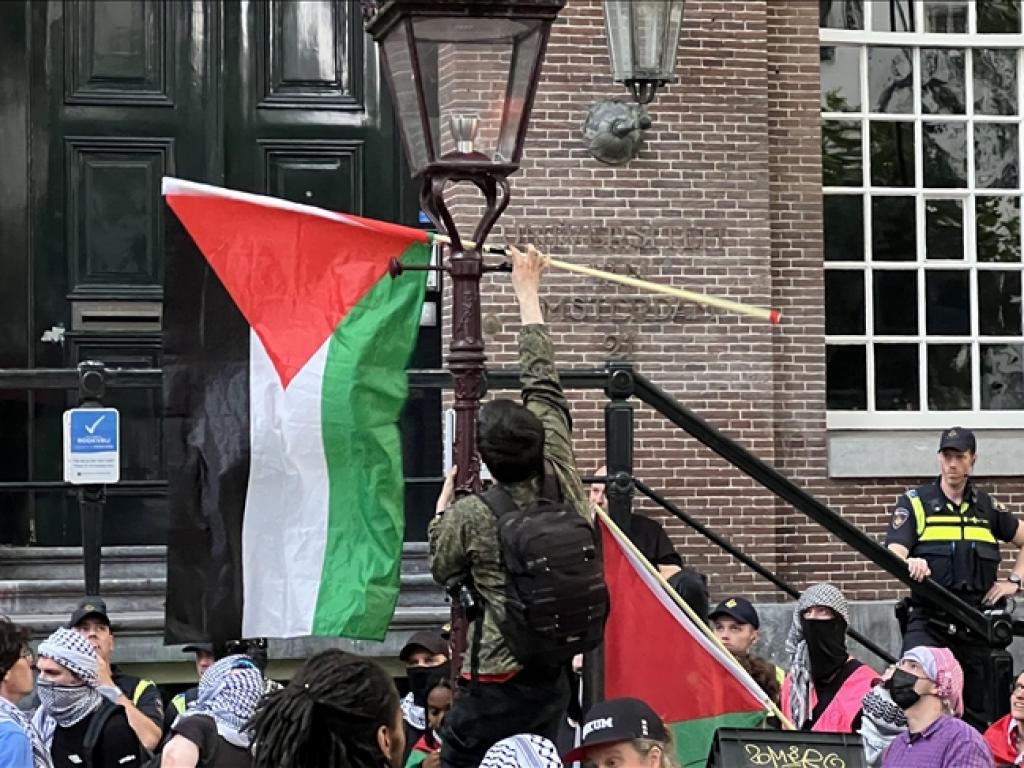
A Trip to Amsterdam, For Palestine
20 January 2026
A reflection on the event Europe, Accountability & Palestine: a Shift in European Perceptions of International Law Violations in Gaza?
-
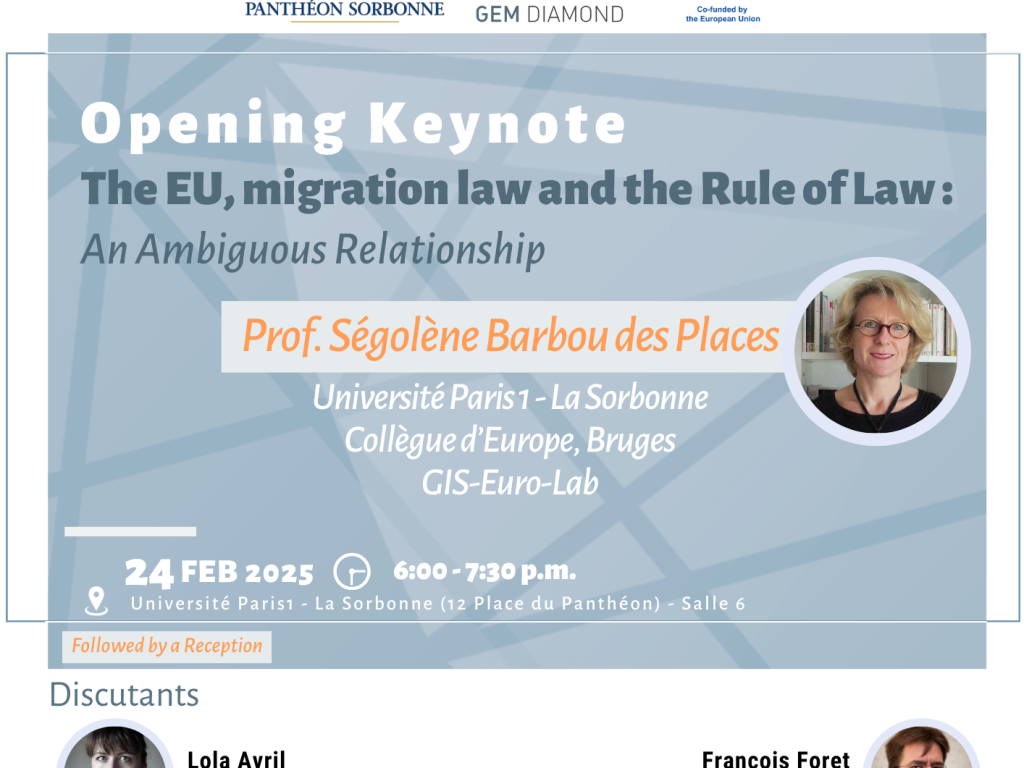
The EU, Migration Law, and the Rule of Law: An Ambiguous Relationship
10 March 2025
Opening of the GEM Diamond Annual Conference in Paris with a Discussion Filled with Dissensus and Contestation.
-
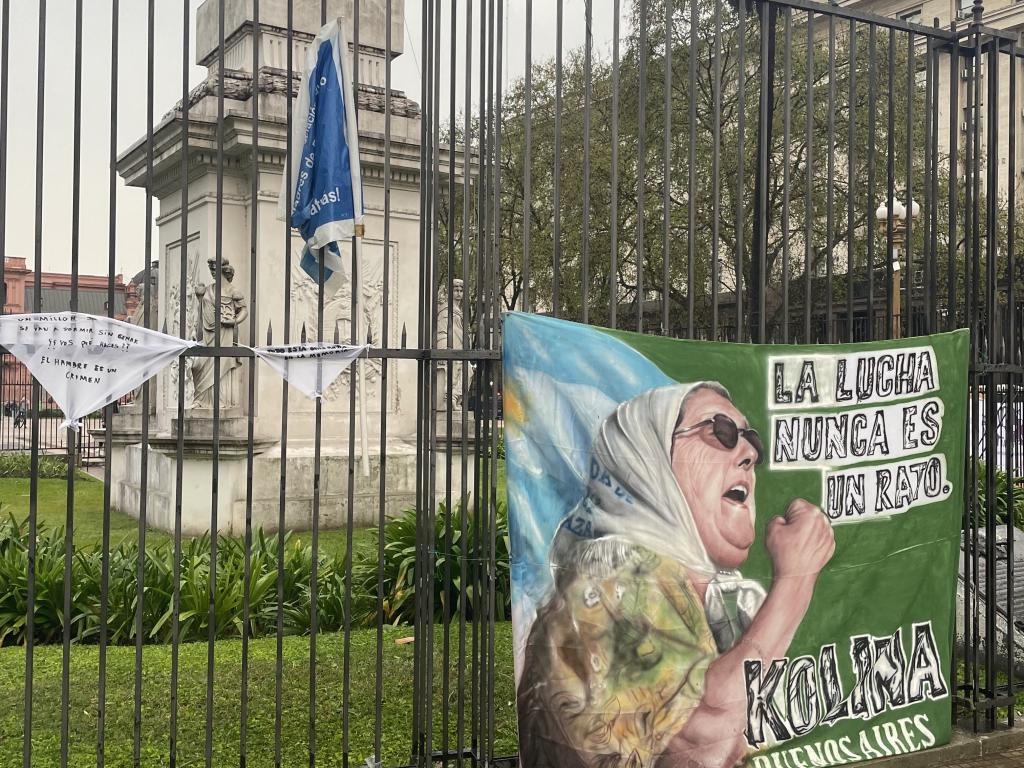
Unpacking the EU and Latin American relations in FLACSO Argentina.
14 October 2024
Brief considerations about my first EU-Latin American relations conference.
-
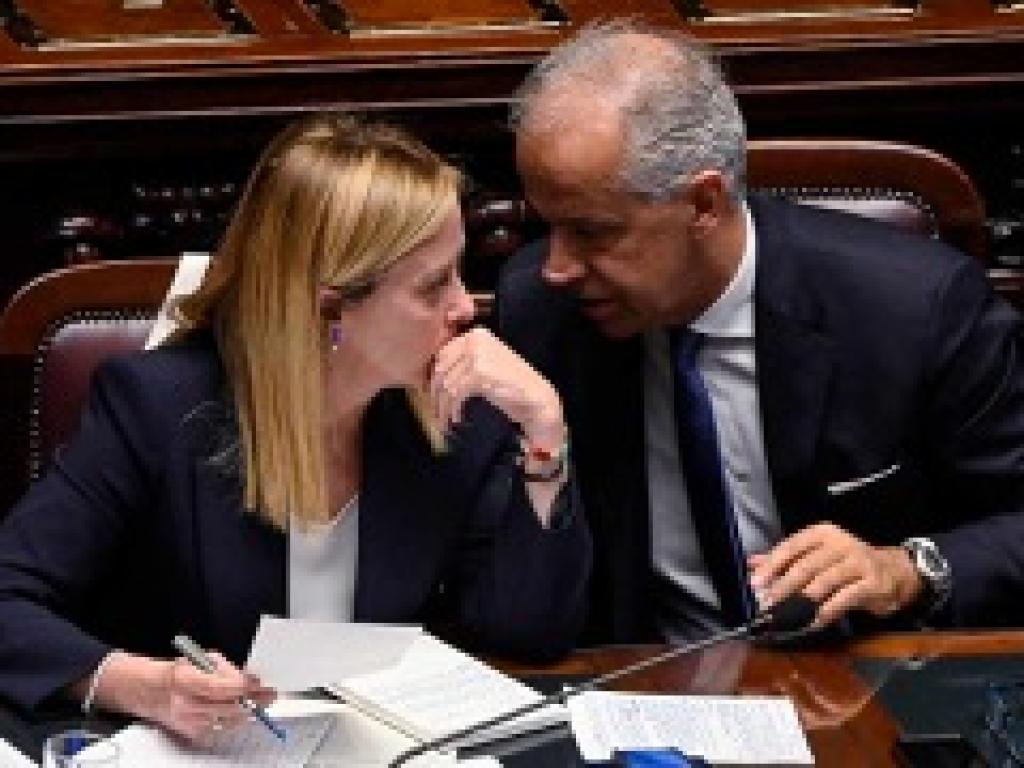
The right to dissent: How Italy is shutting people up.
26 February 2024
How the right to dissent in Italy is under attack.
-
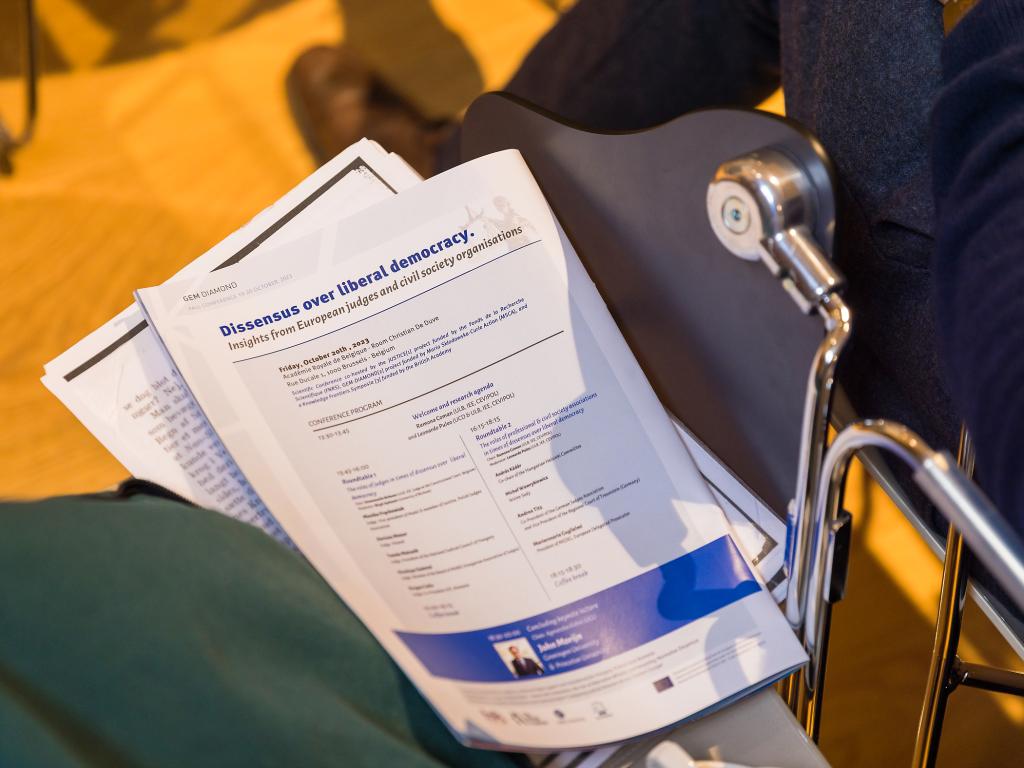
Dissensus over liberal democracy – a lesson from European judges and civil society.
21 November 2023
Insights from the conference "Dissensus on Liberal Democracy: Insights from European Judges and Civil Society".
-
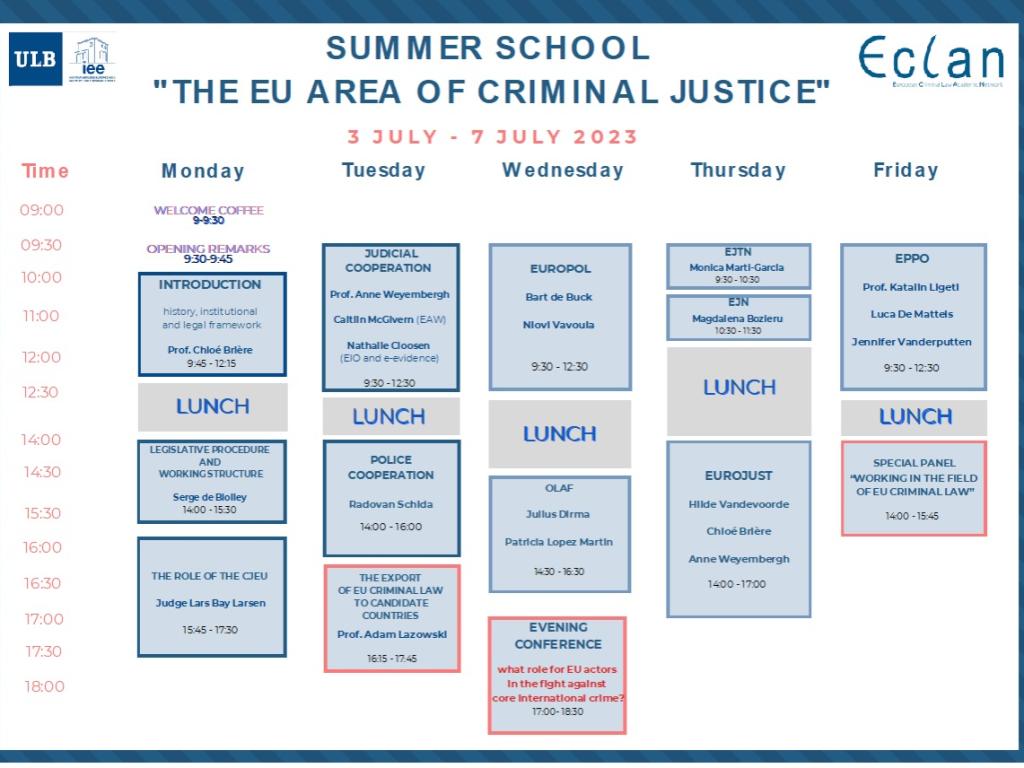
Exploring EU Criminal law with the ECLAN Summer School 2023
4 August 2023
The ECLAN Summer School held from the 3rd to the 7th of July has been a great opportunity to focus on EU Criminal law with academics and practitioners.
-

The 2nd Interdisciplinary Methods Workshop hosted in Copenhagen
27 June 2023
The GEM Fellows have reunited in Copenhagen to attend an Interdisciplinary Methods Workshop, organised by the iCourts at the Faculty of Law in Copenhagen.
-
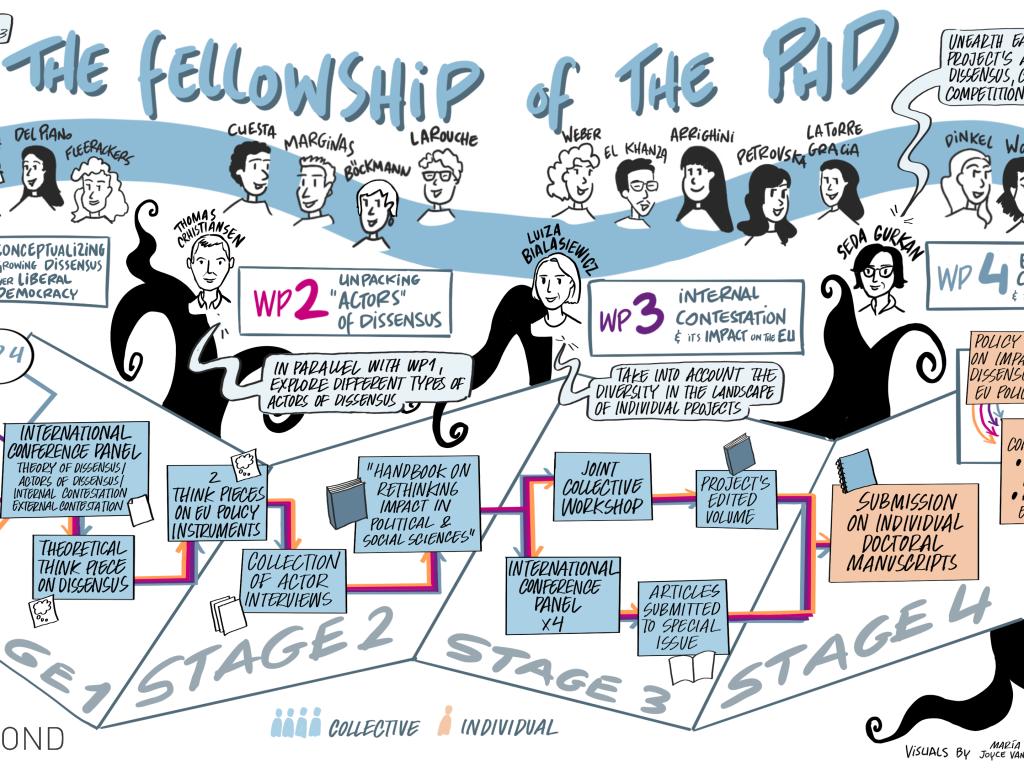
Birth of the GEM-DIAMOND Fellowship of the Ph.D.
1 October 2022
16 MSCA Fellows successfully selected following a gruelling selection process.



